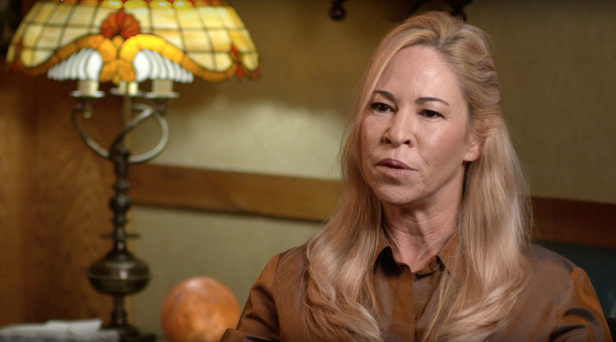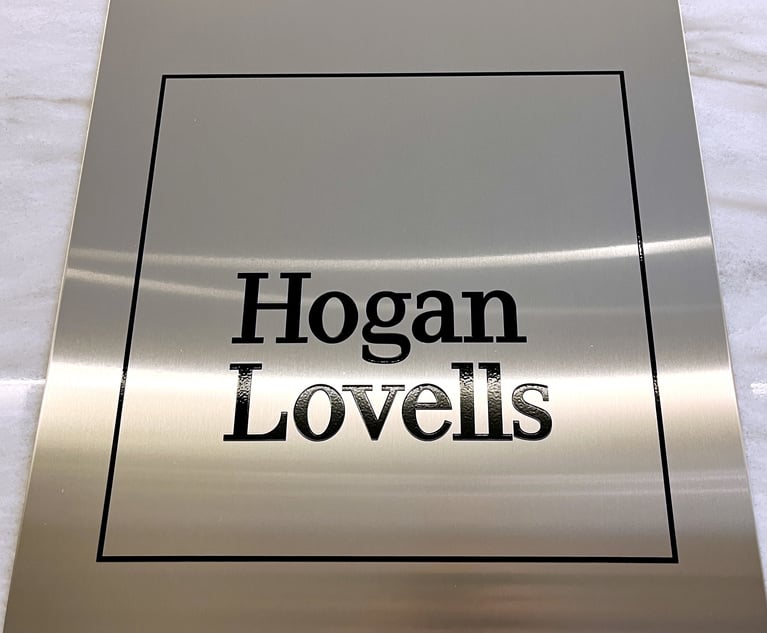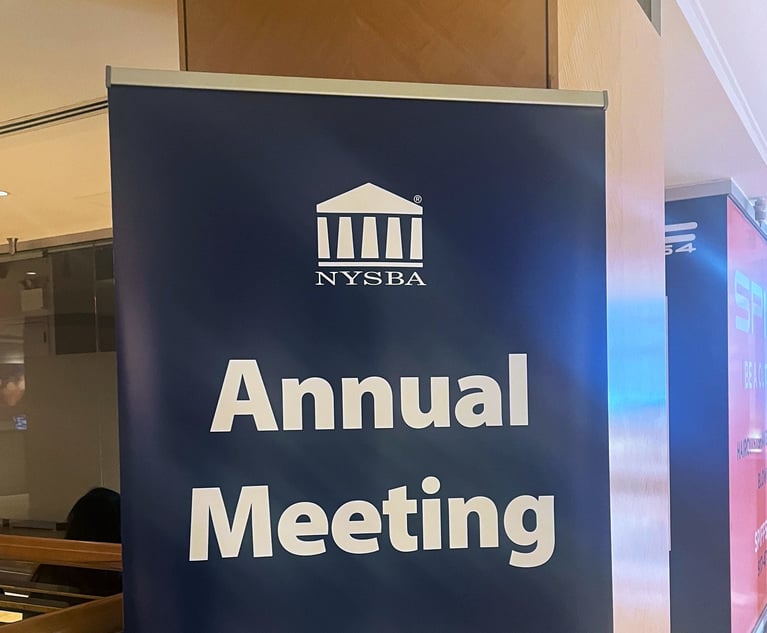Ninth Circuit Shows Caution About Unraveling Trump U Settlement
The appeals panel examining a challenge to the $25 million Trump University settlement appeared unlikely to dismantle the deal as they were peppered with questions from the attorney representing an objector to the deal.
November 15, 2017 at 05:18 PM
5 minute read
 Sherri Simpson.
Sherri Simpson. The appeals panel examining a challenge to the $25 million Trump University settlement appeared unlikely to dismantle the deal as they peppered questions on an attorney representing an objector to the deal.
The objector, Sherri Simpson, a personal bankruptcy attorney in Fort Lauderdale, Florida, had appealed the settlement's approval claiming she was deprived of an opportunity to opt out of the deal, even though an earlier 2015 class notice in the case appeared to promise she would get that opportunity. She's brought in high-profile appellate attorney Deepak Gupta to handle her appeal before the U.S. Court of Appeals for the Ninth Circuit.
In oral arguments on Wednesday, three panel members, all appointees of President Barack Obama, allowed it was an interesting case. They spent most of the time mulling the intersection of constitutional claims and class action law—an academic debate that also drew nearly two dozen law professors to side with Simpson's arguments. But it was clear the panelists also were aware of the political bent of the case, which President Donald Trump settled just days after his election victory last year.
“Setting aside who the defendant is, this is a typical, ordinary, run-of-the mill class action, and it is also a textbook example of a district court properly administering a settlement,” said Trump's attorney, David Kirman, a partner at O'Melveny & Myers in Los Angeles.
Judge Andrew Hurwitz immediately remarked: “I see your client's view of Judge Curiel has changed?” He was referring to U.S. District Judge Gonzalo Curiel of the Southern District of California, who approved the settlement in March but was criticized by candidate Trump, who claimed the Indiana-born judge was biased because of his Mexican heritage.
“Your honor,” Kirman chuckled, “yes.”
And at one point, Hurwitz acknowledged that Simpson likely sought “more in this case than just the right to sue,” to which plaintiffs attorney Steven Hubachek replied: “That's right. There's a little political aspect I believe.”
Gupta, of Washington, D.C.'s Gupta Wessler, tried to convince the panel that a phrase in the 2015 class notice outlining the right of class members to be excluded from the case was unusual. In hundreds of class actions across the country, he said, notices to class members have made clear that they wouldn't get a second chance to opt out should the case settle. But in the Trump University case, the notice allowing class members to opt out as members of the class appeared to indicate that a second opportunity to be excluded from the case would come should it settle. A second notice about the settlement didn't provide that opportunity.
That “no opt out” provision, Gupta said, is unusual.
“You plug that language into Google or into Westlaw, you will not find any other settlement that has that language,” he said. “If you affirm the settlement here, you will be providing a roadmap for settling parties to run roughshod over the promised opt out right.”
Hubachek, of San Diego's Robbins Geller Rudman & Dowd, called the objector's argument “attorney manufactured” and insisted that a reasonable class member wouldn't have been confused by the notice's language.
Both Hurwitz and Judge Jacqueline Nguyen questioned Gupta's claim that his client was denied a procedure that was promised to her.
“That may be a violation of Rule 23,” Hurwitz replied, but “our cases make clear you do not have a constitutional right to a second opt out opportunity,” referring to the Federal Rule of Civil Procedure governing class actions.
They also had standing concerns given that Simpson hadn't actually opted out of the deal, which made it harder to argue she relied on the notice or was economically injured from its provisions.
Standing was the primary focus of Hubachek's arguments.
“Simpson seeks to derail a settlement that the district court found to be exceptional based upon a single parenthetical phrase that she didn't even rely on when she chose not to opt out by the deadline that was provided to every class member,” he told the panel.
The judges also questioned what Simpson ultimately wanted. Did she want the opportunity to opt out, or to bring her own lawsuit? Or did she want to unravel what Hurwitz called “a heckuva good settlement”?
In the end, Hurwitz said, he struggled with what he called a “big world problem.”
“What you're asking us to do is to unravel a settlement that's fair for thousands of people because your client thinks she could have opted out of that deal,” he said. “When I think about this case in real-world terms, that's what troubles me.”
This content has been archived. It is available through our partners, LexisNexis® and Bloomberg Law.
To view this content, please continue to their sites.
Not a Lexis Subscriber?
Subscribe Now
Not a Bloomberg Law Subscriber?
Subscribe Now
NOT FOR REPRINT
© 2025 ALM Global, LLC, All Rights Reserved. Request academic re-use from www.copyright.com. All other uses, submit a request to [email protected]. For more information visit Asset & Logo Licensing.
You Might Like
View All
Hogan Lovells Hires Quinn Emanuel IP Litigator in San Francisco

Patreon Hit With Lawsuit for Allegedly Diverting Subscriber Data to Meta

Willkie Farr & Gallagher Drives Legal Challenge for Uber Against State's Rideshare Laws
5 minute read
NYSBA Annual Meeting: How In-House Counsel Navigate Gen AI Risk
Trending Stories
Who Got The Work
J. Brugh Lower of Gibbons has entered an appearance for industrial equipment supplier Devco Corporation in a pending trademark infringement lawsuit. The suit, accusing the defendant of selling knock-off Graco products, was filed Dec. 18 in New Jersey District Court by Rivkin Radler on behalf of Graco Inc. and Graco Minnesota. The case, assigned to U.S. District Judge Zahid N. Quraishi, is 3:24-cv-11294, Graco Inc. et al v. Devco Corporation.
Who Got The Work
Rebecca Maller-Stein and Kent A. Yalowitz of Arnold & Porter Kaye Scholer have entered their appearances for Hanaco Venture Capital and its executives, Lior Prosor and David Frankel, in a pending securities lawsuit. The action, filed on Dec. 24 in New York Southern District Court by Zell, Aron & Co. on behalf of Goldeneye Advisors, accuses the defendants of negligently and fraudulently managing the plaintiff's $1 million investment. The case, assigned to U.S. District Judge Vernon S. Broderick, is 1:24-cv-09918, Goldeneye Advisors, LLC v. Hanaco Venture Capital, Ltd. et al.
Who Got The Work
Attorneys from A&O Shearman has stepped in as defense counsel for Toronto-Dominion Bank and other defendants in a pending securities class action. The suit, filed Dec. 11 in New York Southern District Court by Bleichmar Fonti & Auld, accuses the defendants of concealing the bank's 'pervasive' deficiencies in regards to its compliance with the Bank Secrecy Act and the quality of its anti-money laundering controls. The case, assigned to U.S. District Judge Arun Subramanian, is 1:24-cv-09445, Gonzalez v. The Toronto-Dominion Bank et al.
Who Got The Work
Crown Castle International, a Pennsylvania company providing shared communications infrastructure, has turned to Luke D. Wolf of Gordon Rees Scully Mansukhani to fend off a pending breach-of-contract lawsuit. The court action, filed Nov. 25 in Michigan Eastern District Court by Hooper Hathaway PC on behalf of The Town Residences LLC, accuses Crown Castle of failing to transfer approximately $30,000 in utility payments from T-Mobile in breach of a roof-top lease and assignment agreement. The case, assigned to U.S. District Judge Susan K. Declercq, is 2:24-cv-13131, The Town Residences LLC v. T-Mobile US, Inc. et al.
Who Got The Work
Wilfred P. Coronato and Daniel M. Schwartz of McCarter & English have stepped in as defense counsel to Electrolux Home Products Inc. in a pending product liability lawsuit. The court action, filed Nov. 26 in New York Eastern District Court by Poulos Lopiccolo PC and Nagel Rice LLP on behalf of David Stern, alleges that the defendant's refrigerators’ drawers and shelving repeatedly break and fall apart within months after purchase. The case, assigned to U.S. District Judge Joan M. Azrack, is 2:24-cv-08204, Stern v. Electrolux Home Products, Inc.
Featured Firms
Law Offices of Gary Martin Hays & Associates, P.C.
(470) 294-1674
Law Offices of Mark E. Salomone
(857) 444-6468
Smith & Hassler
(713) 739-1250






